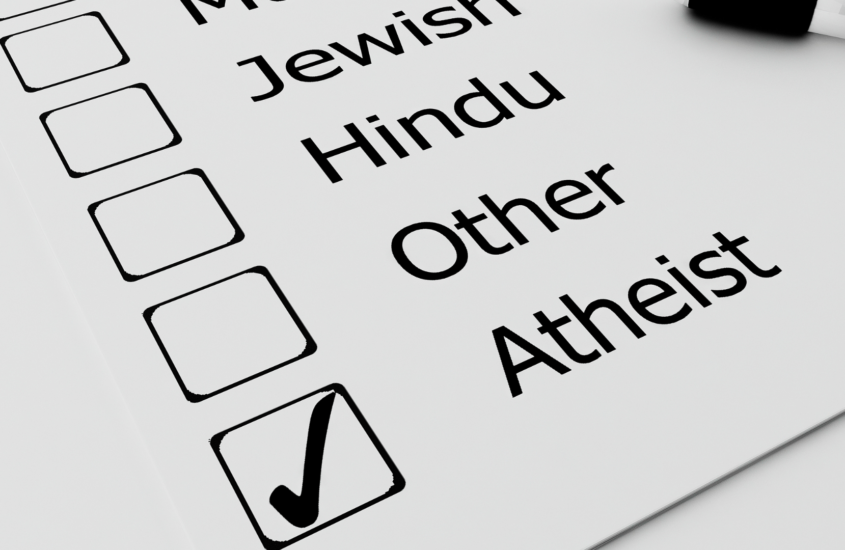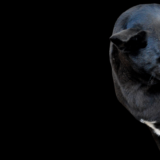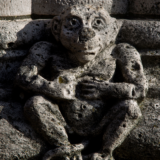Life as a Respectful Atheist

Acknowledging Atheism
According to Collins Dictionary an Atheist is;
- a person who does not believe in God or gods.
Put in its simplest terms, an Atheist does not use God to explain the existence of the universe and instead proposes that human beings can devise suitable moral codes to live by, without the aid of Gods or scriptures.
Life without God
I am an atheist. This does not mean that I burn down churches or punch vicars; I simply do not believe that there is a God/s. I was christened, but throughout my life I have never felt a connection with a higher power. This was not something that affected me until my late teens, where I felt that there was more to the universe than organised religion could provide answers for.
During my time at university, I mixed with various cultures and belief systems. Despite building relationships with a blend of faiths, my own ideals grew stronger and I became blinded by the argument that religion was the ‘easy’ answer. Yes I enjoyed a debate, but I never really listened to the points of others. It wasn’t until I began my employed life, working closely and having multiple conversations with colleagues of the Muslim faith, that the stark realisation seeped into my head that others had their own beliefs and listened to mine, but never judged me for them. It was from here that I learnt to be more open and less of a twat.
The flip side of the coin…
Now don’t get me wrong, I still do not believe in God and still feel that by saying a deity created everything, it only serves to undervalue the countless years of change and growth, not only on Earth, but in the universe as a whole. However, these views are my own and, until someone asks, they stay that way. Both atheism and theism are extremely personal ways of living one’s life and people of both systems, in the most part, strive to be good and do good deeds by others. Regardless of this underlying connection though, there is a clash of ideals – a war of judgement that need not be fought, if beliefs could simply be accepted. This judgement goes both ways, both atheists and theists are guilty of perpetuating the debate and building higher barriers, dividing their common bond; humanity.
I have witnessed a group of atheists hound a Christian friend of theirs with questions and remarks discounting her beliefs and resulting in that person breaking down to tears. On the flip side of the coin, I am regularly visited by Jehovah’s Witnesses who, upon politely telling them my stand-point, look at me with surprise and disapproval in equal measure. One lady even offered a specific copy of a pamphlet that she thought may ‘help’ me with this issue and offered to talk me through the errors of my ways. Here both examples show the extent to which both systems will go to one-up the other and prove that their way is absolute, regardless of how smug and arrogant that comes across.
Saint or Sinner – Who is the Winner?
No matter what your train of thought, we all came into this world from humble beginnings. Whether you believe we were hand-crafted by an omnipresent being, or through ages of evolution – we have all undertaken an epic journey to get to where we are today. We all share the same brief amount of time on this planet and the important lesson to be learned is not who is right or wrong, but in fact, how we choose to live. Charity, compassion, kindness to others – these are qualities shared by religious and non-religious alike and it is these qualities that help us maintain our tolerance and humanity.
At the end of it all – whether saint or sinner, there needn’t have to be a winner.





Gary S.
Just add my tuppence: Religion doesn’t always imply the existence of God. Have a look at ‘nontheistic religions’ like Taoism or Buddhism.
There are also nontheistic fractions/beliefs within Christianity, Hinduism, and Judaism. Life ain’t black and white, and being religious doesn’t always mean to believe in God(s).
About the existence of the universe, you can always believe that it’s all about.. Two parallel orbifold planes or M-branes collide periodically in a higher dimensional space. With quintessence or dark energy. or something equally entertaining from the list of 20 bigger cosmologies humans invented since the beginning of 20th century just so the equations add up:
http://en.m.wikipedia.org/wiki/Cosmology
lol.
gingerwebster
You’re right, life isn’t as black and white as I’ve represented in this post. The post was more about my journey towards being accepting of other people’s points of view, than a discussion on belief systems as a whole.